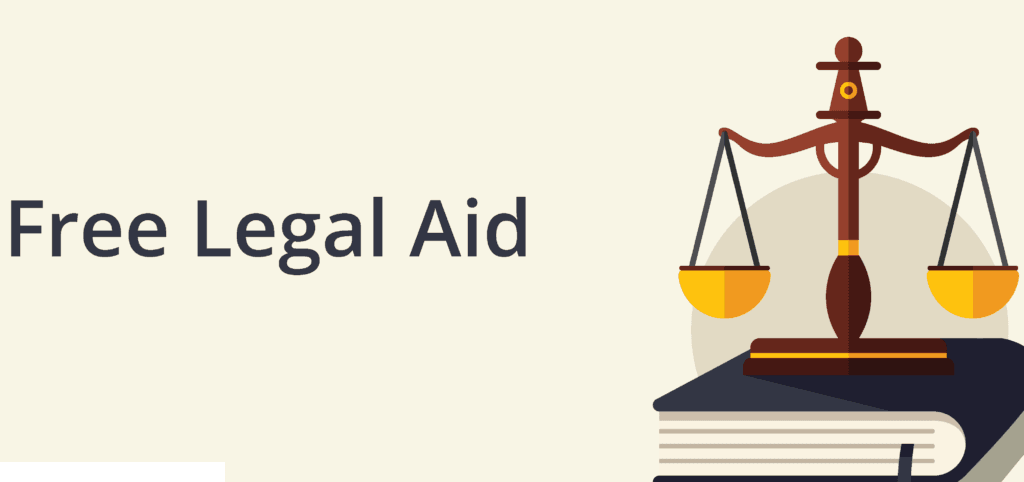
How to Avail Free Legal Services at Legal Services Authority in India
Introduction
Access to justice is a constitutional right in India, but numerous individuals cannot pay for a lawyer. To assist such persons, the government implemented the Legal Services Authorities Act in 1987. The National Legal Services Authority (NALSA) was established under this Act to deliver free legal aid to those who cannot pay for a lawyer. This mechanism makes sure that every person, irrespective of their financial position, can pursue justice and protect their legal rights.
Legal Services Authorities
Legal Services Authorities in India function at various levels to facilitate free legal assistance to as large a population as possible. Nationally, policies and guidelines on legal aid in the country are made by NALSA. Every state also has a State Legal Services Authority (SLSA) which is responsible for legal aid within the state. Equally, District Legal Services Authorities (DLSAs) operate at the district level, offering legal aid to individuals in local communities. At the ground level, Taluk Legal Services Committees operate in small towns and villages, making sure that legal aid is accessible even in far-flung areas. These authorities collectively make legal services available to everyone.
For More Updates & Regular Notes Join Our Whats App Group (https://chat.whatsapp.com/DkucckgAEJbCtXwXr2yIt0) and Telegram Group ( https://t.me/legalmaestroeducators )
For More Updates & Regular Notes Join Our Whats App Group (https://chat.whatsapp.com/DkucckgAEJbCtXwXr2yIt0) and Telegram Group ( https://t.me/legalmaestroeducators ) contact@legalmaestros.com.
Who Can Get Free Legal Aid?
The Legal Services Authorities Act, 1987, makes it absolutely clear as to who can avail free legal services.
Women and children can get free legal aid irrespective of their economic conditions. Scheduled Castes (SC) and Scheduled Tribes (ST) are also covered, so that these groups of people can have access to justice. Victims of human trafficking and forced labor can be provided with legal assistance to safeguard their rights. Individuals with disabilities, victims of natural or industrial catastrophes, and those who have been victims of mass violence also come under the category of eligible. Industrial workers can approach legal assistance for employment disputes. Individuals in custody, such as prisoners and detainees in protective homes or psychiatric hospitals, are entitled to legal representation.
Also, those whose yearly income is lower than the limit set by the government get free legal aid. This limit differs from state to state and is revised every now and then. These arrangements make sure that the weakest segments of society get the legal support they require. ## What Services Are Provided? Under the free legal aid program, deserving persons are entitled to several legal services. They can avail themselves of a lawyer who can represent them during court hearings. If they require the preparation of legal papers like petitions, appeals, or affidavits, the service is offered free of cost. Legal experts provide advisory services to enable persons to know their legal obligations and rights. One of the most significant services under legal aid is joining Lok Adalats. Lok Adalats are courts of alternate resolution that solve cases in a very short time, amicably without having to resort to long court proceedings. These services help provide people who cannot afford legal advice with fair representation and justice.
How to Apply for Free Legal Aid?
There are two primary means of applying for free legal aid.
First, attend the nearest Legal Services Authority office.
It may be the State Legal Services Authority (SLSA), District Legal Services Authority (DLSA), or the Taluk Legal Services Committee, depending on the residence of the applicant.
At the office, there is an application form to be completed with information regarding the case and eligibility proof, i.e., income certificates or identity documents. When submitted, the application is evaluated, and upon determination that the applicant is eligible, legal assistance is offered. The second way is to submit online through the NALSA website. The online facility enables people to submit an application by choosing their state and filling in details. This is particularly convenient for those who are unable to go to a legal aid office in person. After submitting the application online, officials examine the request and offer legal aid if the individual qualifies. ## Tele-Law Services
The government has also launched a special program named Tele-Law to provide legal assistance to individuals in rural and remote locations.
This scheme connects individuals with legal counselors using digital platforms.
Common Service Centres (CSCs) in villages act as access points where individuals can interact with lawyers using video conferencing or phone calls.
This makes it unnecessary for individuals to go long distances to get legal advice.
Since its inception, the Tele-Law program has been expanded to cover hundreds of districts in India and has provided legal guidance to thousands of individuals. ## Paralegal Volunteers’ Role To ensure greater accessibility of legal aid, the government has trained thousands of paralegal volunteers (PLVs). These paralegal volunteers have an important function of identifying individuals who require legal assistance and facilitating them through the application process. They also enlighten communities regarding their legal rights and help in settling minor issues without resort to the courts. Through the connection between legal authorities and the general public, paralegal volunteers ensure legal services are accessed by those most in need.



